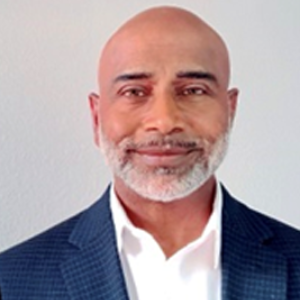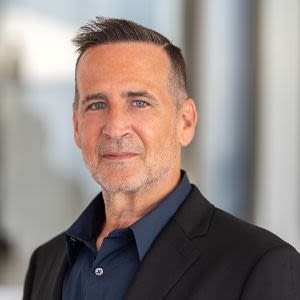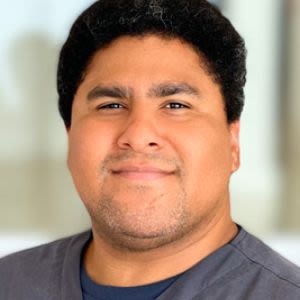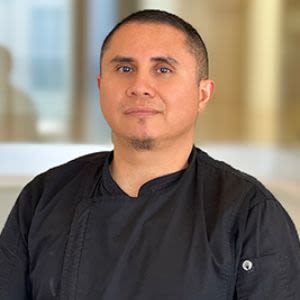






The Pointe Malibu Recovery Center
Verified Center
This provider's information has been quality-checked by Recovery.com's Research Team for accuracy and completeness, including center verification through appropriate third-party organizations.
Treatment Focus
This center treats substance use disorders and mental health conditions. You'll receive individualized care catered to your unique situation and diagnosis, learn practical skills for recovery, and make new connections in a restorative environment.
Primary Level of Care
Offering intensive care with 24/7 monitoring, residential treatment is typically 30 days and can cover multiple levels of care. Length can range from 14 to 90 days typically.
Treatment Focus
This center treats substance use disorders and mental health conditions. You'll receive individualized care catered to your unique situation and diagnosis, learn practical skills for recovery, and make new connections in a restorative environment.
Primary Level of Care
Offering intensive care with 24/7 monitoring, residential treatment is typically 30 days and can cover multiple levels of care. Length can range from 14 to 90 days typically.
Private Pay
You pay directly for treatment out of pocket. This approach can offer enhanced privacy and flexibility, without involving insurance. Exact costs vary based on program and length of stay. Contact the center for specific details.
The Pointe Malibu Recovery Center
The Pointe Malibu Recovery Center
About The Pointe Malibu Recovery Center
The Pointe Malibu Recovery Center guides clients through recovery from addiction, trauma, and chronic pain with detox and residential care in a stunning oceanfront setting. With a trauma-informed philosophy, they integrate evidence-based therapies and holistic practices that calm and regulate the nervous system, helping clients rebuild their lives with clarity and resilience. The serene coastal environment enhances this process, providing a powerful sense of peace and renewal that supports lasting recovery.
Rebuild Inner Safety and Resilience
The Pointe Malibu uses Polyvagal Theory, a nervous system-based approach, to help clients restore a sense of safety so the body and mind can stay calm, connected, and ready to heal. Their program regulates the nervous system through therapies like somatic experiencing (a body-oriented approach), eye movement desensitization and reprocessing (EMDR), acceptance and commitment therapy, and recreational experiences. Clients detox in a private, comfortable setting with round-the-clock monitoring.
Focus on Restoration in Oceanside Luxury
Clients retreat to private suites with balconies that open to sweeping views of the Pacific Ocean. Peaceful spaces for reflection, along with a heated pool and spa, create an atmosphere of relaxation and renewal. Gourmet chefs prepare nourishing, family-style meals that support a healthy, balanced lifestyle. Beyond the residence, clients engage in experiential therapies such as surfing, massage, art therapy, hiking, yoga, and more, making the healing journey both restorative and inspiring.
Build Lasting Bonds Beyond Treatment
The Pointe Malibu is committed to keeping clients supported and connected long after treatment ends: alumni know they always have a community to turn to, whenever they need it. Their comprehensive alumni program welcomes all former residents and provides structured, ongoing support for those who want it. They keep alumni connected with weekly enrichment activities, bi-monthly meetings, annual homecoming events, peer mentoring, and visitor passes to return and encourage current clients.

Highlights from the Center
Highlights
These highlights are provided by and paid for by the center.
Concierge Approach
Perfect for UHNWI
Utmost Confidentiality
Tech Friendly
Center Overview
Treatment Focus
This center treats substance use disorders and mental health conditions. You'll receive individualized care catered to your unique situation and diagnosis, learn practical skills for recovery, and make new connections in a restorative environment.
Pricing and Program Length
Estimated Center Costs
The cost listed here (Starting at $75K per month), is an estimate of program cost. Center price can vary based on program and length of stay. Contact the center for more information. Recovery.com strives for price transparency so you can make an informed decision.
Luxury rehab centers offer a unique blend of luxurious amenities and high-quality treatment. From private suites to gourmet dining, personal trainers to spa treatments, these facilities provide a high level of comfort and discretion.

Meet Your Care Team

Jennell Maze
Executive Director
LCSW

Mel Pohl
Chief Medical Officer
MD, DFASAM

Stacy Cohen
MD Psychiatrist
MD

Dr. Les Aria
Chief Psychological Officer
Ph.D

Morgan Stiles
Clinical Program Director
ACSW

Arthur J. Margulies
Lead Case Manager
JD, CADC-II

Whitney Nuhn
Clinical Supervisor
LMFT, Restoration Therapy Level II Certified, EMDR Practitioner

Arun Sharma
Primary Therapist
AMFT

Sam Sachnoff
Primary Therapist
MSW, ACSW

Ben Perkins
Primary Therapist
LCSW

Ashleigh Abramovici
Primary Therapist
AMFT

Josh Clark
Nurse Lead
LVN

Abigail Gomez
Residential Nurse
RN

Nikki Smith
Residential Nurse
LVN

Heather Arguelles
Residential Nurse
LVN

Angela Drake
Residential Nurse
RN

Juan Euan
Executive Chef

Jorge Salazar
Sous Chef




Levels of Care








Your Care Options
Specializations
Alcohol
Using alcohol as a coping mechanism, or drinking excessively throughout the week, signals an alcohol use disorder.
Chronic Pain Management
Long-term physical pain can have an affect on mental health. Without support, it can also impact your daily life and even lead to addiction.
Executives
Executive treatment programs typically directly support the needs of people who manage businesses and may provide flexible schedules and office space to allow work during treatment.
Holistic
A non-medicinal, wellness-focused approach that aims to align the mind, body, and spirit for deep and lasting healing.
Personalized Treatment
The specific needs, histories, and conditions of individual patients receive personalized, highly relevant care throughout their recovery journey.
Surf Therapy
Surf therapy promotes body awareness, mindfulness, and self-confidence. Because sessions begin with surf lessons, this treatment is appropriate for beginners.
Trauma
Some traumatic events are so disturbing that they cause long-term mental health problems. Those ongoing issues can also be referred to as "trauma."
Who We Treat
Executives
Executive treatment programs typically directly support the needs of people who manage businesses and may provide flexible schedules and office space to allow work during treatment.
Young Adults
Emerging adults ages 18-25 receive treatment catered to the unique challenges of early adulthood, like college, risky behaviors, and vocational struggles.
LGBTQ+
Addiction and mental illnesses in the LGBTQ+ community must be treated with an affirming, safe, and relevant approach, which many centers provide.
Midlife Adults
For adults ages 40+, treatment shifts to focus on the unique challenges, blocks, and risk factors of their age group, and unites peers in a similar community.
Mild Disabilities
Adults with mild physical or intellectual disabilities receive treatment catered to their specific needs in a safe and clinically supportive environment.
Pregnant Women
Addiction and mental health treatment meets the clinical and psychological needs of pregnant women, ensuring they receive optimal care in all areas.
Professionals
Busy, high-ranking professionals get the personalized treatment they need with greater accommodations for work, privacy, and outside communication.
Approaches
Evidence-Based
A combination of scientifically rooted therapies and treatments make up evidence-based care, defined by their measured and proven results.
Holistic
A non-medicinal, wellness-focused approach that aims to align the mind, body, and spirit for deep and lasting healing.
Personalized Treatment
The specific needs, histories, and conditions of individual patients receive personalized, highly relevant care throughout their recovery journey.
Therapies
1-on-1 Counseling
Patient and therapist meet 1-on-1 to work through difficult emotions and behavioral challenges in a personal, private setting.
Meditation & Mindfulness
A practiced state of mind that brings patients to the present. It allows them to become fully aware of themselves, their feelings, and the present moment.
Trauma-Specific Therapy
This form of talk therapy addresses any childhood trauma at the root of a patient's current diagnosis.
Online Therapy
Patients can connect with a therapist via videochat, messaging, email, or phone. Remote therapy makes treatment more accessible.
Rational Emotive Behavior Therapy
A type of cognitive therapy that identifies negative self-defeating thoughts and behaviors, rewriting beliefs to be positive, empowering, and present.
Transcranial Magnetic Stimulation
Localized magnetic pulses stimulate areas of the brain to increase brain activity and reduce abnormal functions.
Mindfulness Therapy
This ancient practice can be mental, emotional, and even spiritual. In meditation, you focus your attention on the present moment without judgement.
Conditions We Treat
Schizophrenia
Schizophrenia is a serious mental health condition that causes hallucinations, delusions, and disordered thinking.
Personality Disorders
Personality disorders destabilize the way a person thinks, feels, and behaves. If untreated, they can undermine relationships and lead to severe distress.
ADHD, ADD
ADHD is a common mental health condition caused by dopamine imbalance. Common symptoms include inattention, hyperactivitiy, and impulsivity.
Anger
Although anger itself isn't a disorder, it can get out of hand. If this feeling interferes with your relationships and daily functioning, treatment can help.
Anxiety
Anxiety is a common mental health condition that can include excessive worry, panic attacks, physical tension, and increased blood pressure.
Bipolar
This mental health condition is characterized by extreme mood swings between depression, mania, and remission.
Burnout
Burnout entails mental and physical exhaustion, and leads to a severe lack of fulfillment. This condition is often caused by overwork.
Chronic Pain Management
Long-term physical pain can have an affect on mental health. Without support, it can also impact your daily life and even lead to addiction.
Codependency
Codependency is a pattern of emotional dependence and controlling behavior. It's most common among people with addicted loved ones.
Substances We Treat
Alcohol
Using alcohol as a coping mechanism, or drinking excessively throughout the week, signals an alcohol use disorder.
Benzodiazepines
Benzodiazepines are prescribed to treat anxiety and sleep issues. They are highly habit forming, and their abuse can cause mood changes and poor judgement.
Chronic Relapse
Consistent relapse occurs repeatedly, after partial recovery from addiction. This condition requires long-term treatment.
Co-Occurring Disorders
A person with multiple mental health diagnoses, such as addiction and depression, has co-occurring disorders also called dual diagnosis.
Cocaine
Cocaine is a stimulant with euphoric effects. Agitation, muscle ticks, psychosis, and heart issues are common symptoms of cocaine abuse.
Drug Addiction
Drug addiction is the excessive and repetitive use of substances, despite harmful consequences to a person's life, health, and relationships.
Ecstasy
Ecstasy is a stimulant that causes intense euphoria and heightened awareness. Abuse of this drug can trigger depression, insomnia, and memory problems.
Heroin
Heroin is a highly addictive and illegal opioid. It can cause insomnia, collapsed veins, heart issues, and additional mental health issues.
Psychedelics
Hallucinogenic drugs—like LSD—cause euphoria and increased sensory experiences. When abused, they can lead to depression and psychosis.
Languages
Aftercare
Care Designed for Your Needs
Personal Amenities
Amenities
Special Considerations
Clients can bring their own pet(s)
For greater comfort and healing, pet-friendly treatment centers welcome dogs and animal companions to stay with their owners while they attend treatment.
Pet Friendly
For greater comfort and healing, pet-friendly treatment centers welcome dogs and animal companions to stay with their owners while they attend treatment.
Executive Program
Addiction and mental health treatment for executives typically involves high discretion, greater technology access, and more private, 1-on-1 care.
Flexible technology policies
Centers with flexible technology policies allow professionals to stay in touch with work and give patients a greater sense of connection and normalcy.
Activities
Yoga
Yoga is both a physical and spiritual practice. It includes a flow of movement, breathing techniques, and meditation.
Off-Site Activities
Off-Site Amenities
What people are saying
Treatment
4.8
Accommodations
4.9
Food & Nutrition
4.8
Value
4.7
Pros
- Luxurious Accommodations (5)
- Gourmet & Nutritious Food (5)
- Excellent & Effective Treatment Programming (5)
- Beautiful Location (5)
KC
Treatment in 2020 • (30 days) • Reviewed 01/24/23
Former Client
•Creative
•Calabasas
Earl Hightower
Reviewed 01/12/23
Referring Professional
•Interventionist
AV
Treatment in 2022 • (4 months) • Reviewed 01/24/23
Former Client
•Tech
La Flama Blanca
Treatment in 2022 • (30 days) • Reviewed 01/12/23
Former Client
•Real Estate Professional
KI
Treatment in 2020 • (60 days) • Reviewed 01/11/23
Former Client
•Retired HR Banking Professional & now Student






